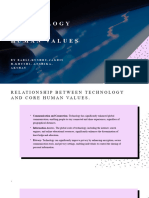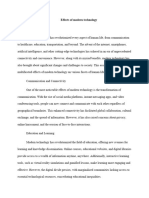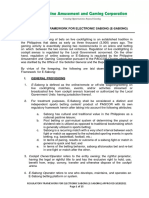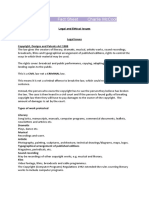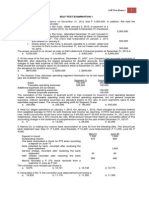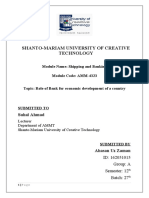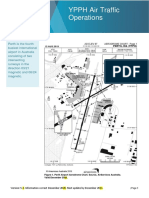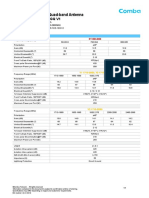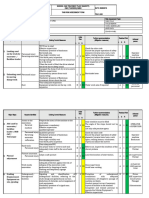0% found this document useful (0 votes)
18 views13 pagesInformation Technologia
The document explores the profound impact of technology on society, highlighting its transformative effects on communication, education, healthcare, and the workplace. While technology has democratized access to information and improved quality of life, it also presents challenges such as privacy concerns, digital addiction, and job displacement. The need for ethical standards and regulatory frameworks is emphasized to ensure technology serves societal good and inclusivity.
Uploaded by
piyushsingh070707Copyright
© © All Rights Reserved
We take content rights seriously. If you suspect this is your content, claim it here.
Available Formats
Download as PDF, TXT or read online on Scribd
0% found this document useful (0 votes)
18 views13 pagesInformation Technologia
The document explores the profound impact of technology on society, highlighting its transformative effects on communication, education, healthcare, and the workplace. While technology has democratized access to information and improved quality of life, it also presents challenges such as privacy concerns, digital addiction, and job displacement. The need for ethical standards and regulatory frameworks is emphasized to ensure technology serves societal good and inclusivity.
Uploaded by
piyushsingh070707Copyright
© © All Rights Reserved
We take content rights seriously. If you suspect this is your content, claim it here.
Available Formats
Download as PDF, TXT or read online on Scribd
/ 13


















